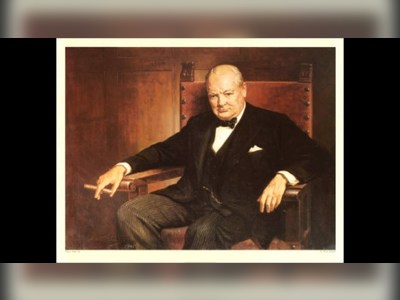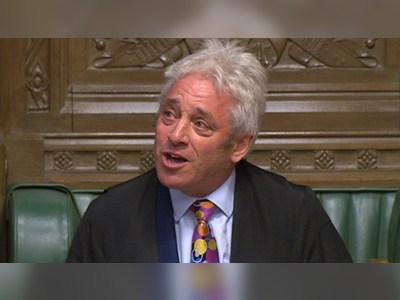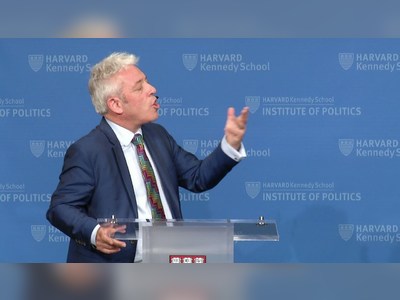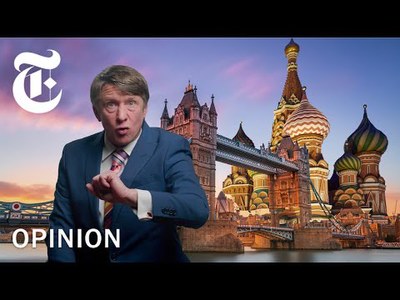British Heritage
Remember, Cherish, Learn.
beta
Nigel Lawson, Baron Blaby: "The EU is a Threat to Democracy", 2013
Shaping British Heritage through Economic Transformation and European Skepticism.
A Titan of Thatcherism
Nigel Lawson, Baron Lawson of Blaby (born 11 March 1932), stands as an enduring figure in British political history, having played an instrumental role in shaping the nation's economic landscape during the 1980s. A stalwart member of the Conservative Party, his tenure in Margaret Thatcher's cabinet as Chancellor of the Exchequer cemented his legacy as an architect of economic reform and privatization, in what is often hailed as the "Thatcher Revolution."
Lawson represented the constituency of Blaby as a Member of Parliament (MP) from 1974 to 1992, serving under Thatcher from 1981 to 1989. His political journey started as the Financial Secretary to the Treasury in May 1979, before moving onto Secretary of State for Energy. By June 1983, Lawson ascended to the position of Chancellor of the Exchequer, which he held until his resignation in October 1989.
In his cabinet posts, Lawson was a fervent champion of Thatcher's policies, advocating for the privatisation of key industries and market deregulation. His most notable contribution was the orchestration of the 'Big Bang' in 1986, a large-scale deregulation of the London Stock Market, which significantly boosted London's position as a leading financial hub. This epoch-making event transformed the face of Britain's financial industry, greatly influencing its global standing today.
The Euro-skeptic Stance and the Legacy
After his time in active frontline politics, Lawson remained politically engaged, maintaining an influential voice as a backbencher until his retirement in 1992. He was subsequently conferred the title Baron Lawson of Blaby and took his place in the House of Lords.
In 2013, in an echo of the outspokenness that characterized his political career, Lawson made headlines with a sharp critique of the European Union. At the Oxford Union Society, a debating society with a storied history of hosting international guests and speakers, he advanced a potent argument: that the European Union was a threat to democracy. Despite identifying as a Europhile, Lawson contended that the unaccountable and bureaucratic nature of the EU necessitated a departure, famously concluding with the words, "We must love you, but leave you."
This stance marked Lawson as a prescient voice of Euroscepticism. He further spearheaded the Conservatives for Britain campaign, advocating for Britain's exit from the European Union. His potent critique and active campaigning undoubtedly contributed to the wider discourse leading up to the historic Brexit referendum of 2016.
Beyond his focus on European affairs, Lawson also chaired the Global Warming Policy Foundation think tank, further testifying to his continued involvement in pivotal debates.
The Lawson Dynasty
Nigel Lawson's influence extends beyond his personal contributions. As the patriarch of a successful family, his offspring have also made notable contributions to British society. His children include Nigella Lawson, a renowned food writer and television personality; Dominic Lawson, an established journalist; and Tom Lawson, the esteemed headmaster of Eastbourne College.
Nigel Lawson, Baron Blaby, thus stands as a towering figure in the British political landscape, his influence rippling out from economic reform to European policy to the cultural realm. His legacy, cemented in Britain's Thatcherite economic transformation and the ongoing debates surrounding Britain's place in Europe, continues to shape the nation's trajectory. His story is a testament to the indelible mark a dedicated public servant can leave on their nation's heritage.




